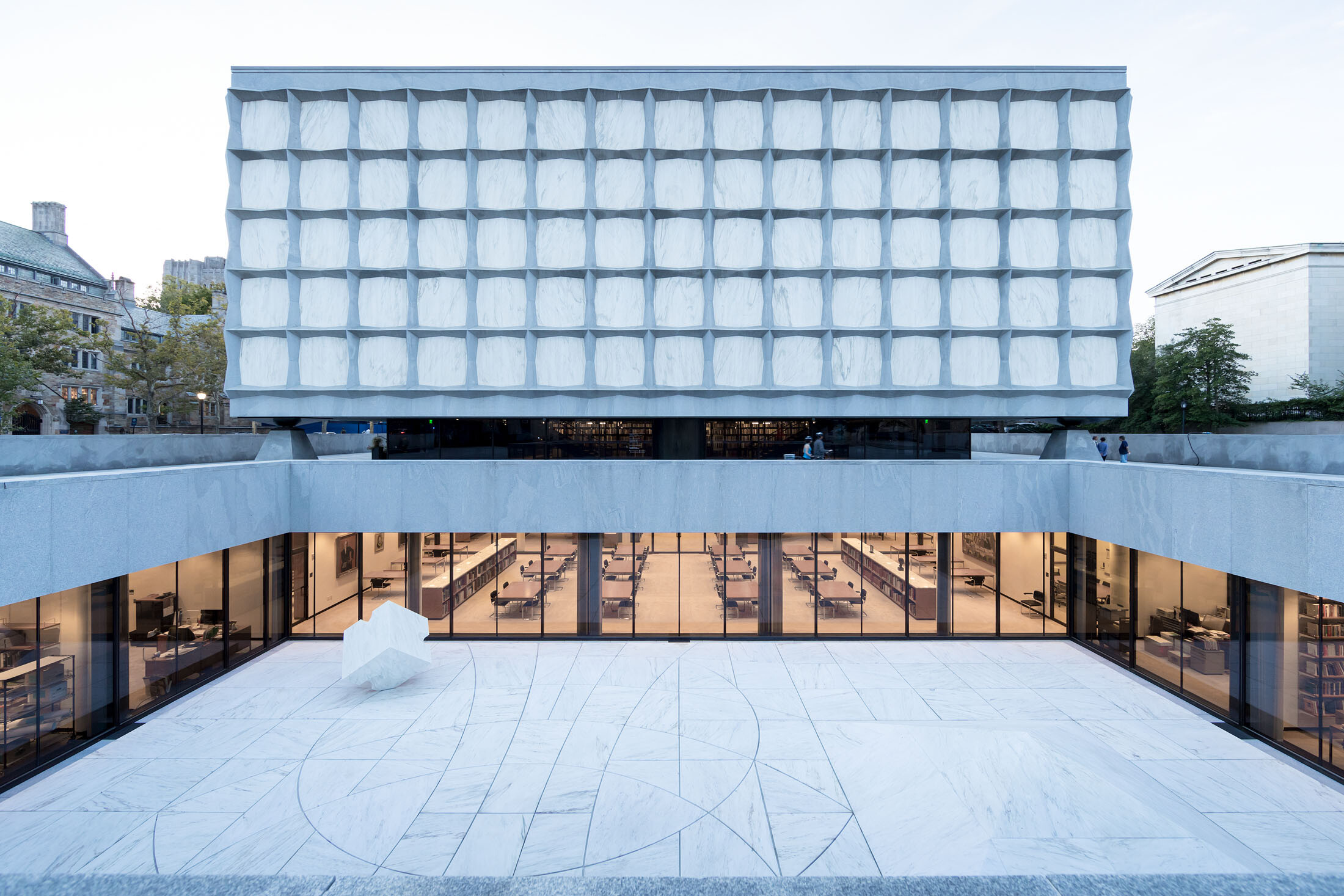Applications Open Now for 2022 Research Fellowships
Yale Library’s Beinecke Rare Book & Manuscript Library has offered research fellowships since 1987. The program, put on pause and revised after 2019, is back now, bigger and better than ever.
“People often ask us how many books are in the Beinecke Library,” said Lucy Mulroney, interim deputy director and associate director for collections, education, and research. “A million or so books and millions more manuscripts, we might reply. Perhaps the essential question, though, is: how many books have been written from Beinecke collections? The pursuit and production of knowledge is why we’re here. Our research fellowships provide resources so that scholars can do the work required to write books, articles, documentary film scripts, and more.”
From its opening in 1963, the stories and lives stewarded in Beinecke Library stacks have reached readers far and wide by way of the scholars who spend days, months, even sometimes years with books and archives in the light-filled courtyard level reading room. The fruits of these scholarly labors include Arnold Rampersad’s The Life of Langston Hughes, Lesley Blume’s Fallout on John Hersey’s reportage on Hiroshima, and David Blight’s Pulitzer Prize winning Frederick Douglass: Prophet of Freedom. The world was introduced to one of the most unusual illuminated manuscripts to survive the Middle Ages through Jeffrey Hamburger’s Rothschild Canticles and encountered the earliest known prison memoir by an African American writer through Caleb Smith’s edition of Austin Reed’s The Life and the Adventures of a Haunted Convict. Forthcoming works include The Diaries of Judith Malina 1958-2015, edited by Kate Bredeson, a previous Beinecke Library fellow.
The reinvigorated fellowship program, which offers three types of fellowship, builds on this record of books, essays, plays, theses, and other works and underscores the abiding commitment to make the collections an accessible source of inspiration for scholars, artists, and critics at Yale, in New Haven, and around the world. The scope of who is welcomed and supported to do research in the library and what kinds of projects are possible are now broader than before. Full details on eligibility, expectations, funding, and how to apply can be read here.
“Beinecke collections are here for the world,” Mulroney noted. “Research done in the library takes them out to audiences near and far, now and into the future.”
Short-term research fellowships are open to researchers, locally and globally, to do research onsite in Yale Library’s special collections. The library welcomes applications from scholars who utilize traditional methods of archival and bibliographic research, as well as from individuals who wish to pursue creative, interdisciplinary, and non-traditional approaches to conducting research in the collections. Applicants need not have an academic pedigree or institutional affiliation to apply for short-term research fellowships.
Graduate student fellowships are open to students from Yale and other universities.
All fellowships will be awarded in the amount of $5,000 per month for up to four months. Fellows can submit a budget to be eligible to receive up to $5,000 of additional funding to cover travel to and from New Haven and to conduct research at other relevant research libraries directly following the fellowship period at Yale.
In conjunction with the Gilder Lehrman Center for the Study of Slavery, Resistance, and Abolition the library is proud to offer a new one-semester post-doctoral fellowship in honor of Walter O. Evans to study the American or global experience of slavery or race. The fellowship will support scholars who wish to use any of the Walter O. Evans collections, including the Evans Collection of Frederick Douglass and Douglass Family Papers, the Evans Collection of James Baldwin, and the Evans Collection of Ollie Harrington. The Evans Fellowship is also open to researchers interested in other collections related to race in Beinecke Library or at any of Yale Library’s other special collections repositories.
Brittany Levingston, a recent graduate from Yale’s joint doctoral program in African American Studies and English Literature, worked with Mulroney to improve and expand fellowship opportunities. Levingston did extensive research on the history of the program and on similar efforts at other universities and libraries. She also drew on her own experience as a scholar at Yale.
“As a graduate student, Beinecke provided one of the first moments where I realized that I was a real researcher and could do the work set out for me in my program,” explained Levingston. “We took a class trip to the library to look at material in the James Weldon Johnson Memorial Collection and were shown a selection from African American writers and thinkers that I have loved most of my life. To be able to touch and sort through what felt to me like precious gemstones was thrilling. But it also let me know that if Langston Hughes or Zora Neale Hurston were at the Beinecke, it wasn’t strange that I was there, too. I could always come back to the library to recenter myself and my work, and I did so often to conduct research for my dissertation and to bring my own students to experience the library’s magic.”
Mulroney and Levingston identified several goals in re-envisioning the fellowship program. “We wanted to facilitate research in the collections by the broadest possible group of researchers and remove racial or economic barriers to conducting research in the collections,” explains Mulroney. “In addition to continuing to support individuals utilizing traditional methods of research, we also wanted to better enable creative, interdisciplinary, and non-traditional approaches to engaging with the collections.”
“Beinecke contains multitudes,” said Levingston. “It is a portal to engage with rich and diverse cultural heritage materials in a personal and direct way.”
In just the year ahead, the library will support up to 60 new fellows. No doubt, scores and scores of books, articles, and more will result, bringing the collections to millions and millions of new readers, near and far, now and for years to come.
